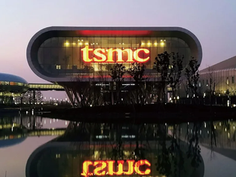Security Law
- Rahaman Hadisur

- May 12, 2025
- 2 min read
Hadisur Rahman, JadeTimes Staff
H. Rahman is a Jadetimes news reporter covering Asia

In Hong Kong, patriotism has taken on a new and controversial form. A growing number of citizens, led by self-proclaimed "patriots" like 60-year-old former banker Innes Tang, are actively reporting fellow residents to authorities for suspected breaches of the National Security Law (NSL).
Tang, who operates a public hotline and mobilizes social media followers to surveil their communities, has already reported dozens of individuals and organizations to the police. “We’re in every corner of society, watching, to see if there is anything suspicious which could infringe on the national security law,” Tang told the BBC.
Since its enactment in 2020 following mass pro-democracy protests, the NSL has reshaped daily life in Hong Kong, criminalizing acts considered “secession,” “subversion,” or collusion with foreign forces. A newer security law, Article 23, further expands the government’s power.
Authorities say the surveillance system has proved effective. Between November 2020 and February 2025, Hong Kong’s official security hotline received over 890,000 tips. Tang and his volunteers claim to have been responsible for nearly 100 reports, several of which have resulted in investigations or jail sentences.
But critics warn of a deepening culture of fear and censorship. University lecturer and pro-democracy advocate Kenneth Chan, once active in the protest movement, says the system has led to self-censorship and isolation. “Some friends and students now avoid me,” he admitted, “but I can’t blame them it’s the system.”
The city's Legislative Council, now limited to officials who pledge loyalty to the Chinese Communist Party, no longer includes pro-democracy representatives. Electoral reforms passed in 2021 made it nearly impossible for dissenting voices to gain political footholds.
While Tang says his early support for China was shaped by a rejection of colonial inequality, even he now acknowledges the risks of politicizing the law. “I don’t want to see every policy passing with 90% of the vote,” he says. “There is a danger the National Security Law will be weaponized.”
Despite growing international criticism, Hong Kong’s government maintains that the system has removed "extremists" who sought to "paralyse" governance and asserts that academic freedom and public safety are still priorities.
For now, Tang says he has ceased reporting individuals. “Balance and stability,” he believes, “have returned.” But for many in the city, including scholars like Chan, the cost of that stability has been profound: “We are no longer a city of protests. So what are we? I don’t have the answer yet.”











































Comments